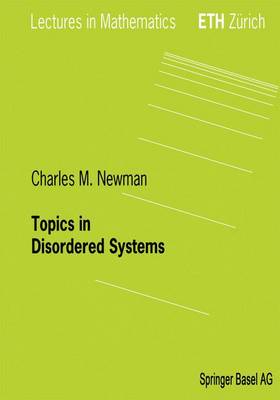Lectures in Mathematics. ETH Zurich
1 total work
Disordered systems are statistical mechanics models in random environments. This lecture notes volume concerns the equilibrium properties of a few carefully chosen examples of disordered Ising models. The approach is that of probability theory and mathematical physics, but the subject matter is of interest also to condensed matter physicists, material scientists, applied mathematicians and theoretical computer scientists. (The two main types of systems considered are disordered ferromagnets and spin glasses. The emphasis is on questions concerning the number of ground states (at zero temperature) or the number of pure Gibbs states (at nonzero temperature). A recurring theme is that these questions are connected to interesting issues concerning percolation and related models of geometric/combinatorial probability. One question treated at length concerns the low temperature behavior of short-range spin glasses: whether and in what sense Parisi's analysis of the meanfield (or "infinite-range") model is relevant. Closely related is the more general conceptual issue of how to approach the thermodynamic (i.e., infinite volume) limit in systems which may have many complex competing states. This issue has been addressed in recent joint work by the author and Dan Stein and the book provides a mathematically coherent presentation of their approach.)
